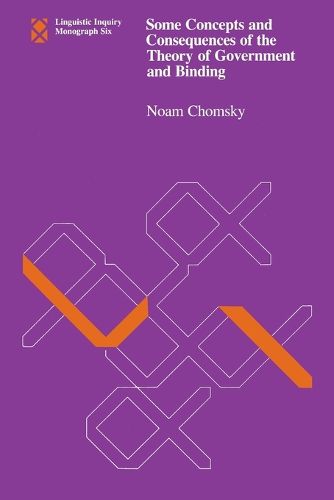Readings Newsletter
Become a Readings Member to make your shopping experience even easier.
Sign in or sign up for free!
You’re not far away from qualifying for FREE standard shipping within Australia
You’ve qualified for FREE standard shipping within Australia
The cart is loading…






Noam Chomsky, more than any other researcher, has radically restructured the study of human language over the past several decades. While the study of government and binding is an outgrowth of Chomsky’s earlier work in transformational grammar, it represents a significant shift in focus and a new direction of investigation into the fundamentals of linguistic theory. This monograph consolidates and extends this new approach. It serves as a concise introduction to government-binding theory, applies it to several new domains of empirical data, and proposes some revisions to the principles of the theory that lead to greater unification, descriptive scope, and explanatory depth. Earlier work in the theory of grammar was concerned primarily with rule systems. The accent in government-binding theory, however, is on systems of principles of universal grammar. In the course of this book, Chomsky proposes and evaluates various general principles that limit and constrain the types of rules that are possible, and the ways they interact and function. In particular, he proposes that rule systems are in fact highly restricted in variety: only a finite number of grammars are attainable in principle, and these fall into a limited set of types. Another consequence of this shift in focus is the change of emphasis from derivations to representations. The major topic in the study of syntactic representations is the analysis of empty categories, which is a central theme of the book. After his introductory comments and a chapter on the variety of rule system, Chomsky takes up, in turn, the general properties of empty categories, the functional determination of empty categories, parasitic gaps, and binding theory and the typology of empty categories. Noam Chomsky is Institute Professor at MIT. The book is the sixth in the series Linguistic Inquiry Monographs, edited by Samuel Jay Keyser.
$9.00 standard shipping within Australia
FREE standard shipping within Australia for orders over $100.00
Express & International shipping calculated at checkout
Noam Chomsky, more than any other researcher, has radically restructured the study of human language over the past several decades. While the study of government and binding is an outgrowth of Chomsky’s earlier work in transformational grammar, it represents a significant shift in focus and a new direction of investigation into the fundamentals of linguistic theory. This monograph consolidates and extends this new approach. It serves as a concise introduction to government-binding theory, applies it to several new domains of empirical data, and proposes some revisions to the principles of the theory that lead to greater unification, descriptive scope, and explanatory depth. Earlier work in the theory of grammar was concerned primarily with rule systems. The accent in government-binding theory, however, is on systems of principles of universal grammar. In the course of this book, Chomsky proposes and evaluates various general principles that limit and constrain the types of rules that are possible, and the ways they interact and function. In particular, he proposes that rule systems are in fact highly restricted in variety: only a finite number of grammars are attainable in principle, and these fall into a limited set of types. Another consequence of this shift in focus is the change of emphasis from derivations to representations. The major topic in the study of syntactic representations is the analysis of empty categories, which is a central theme of the book. After his introductory comments and a chapter on the variety of rule system, Chomsky takes up, in turn, the general properties of empty categories, the functional determination of empty categories, parasitic gaps, and binding theory and the typology of empty categories. Noam Chomsky is Institute Professor at MIT. The book is the sixth in the series Linguistic Inquiry Monographs, edited by Samuel Jay Keyser.